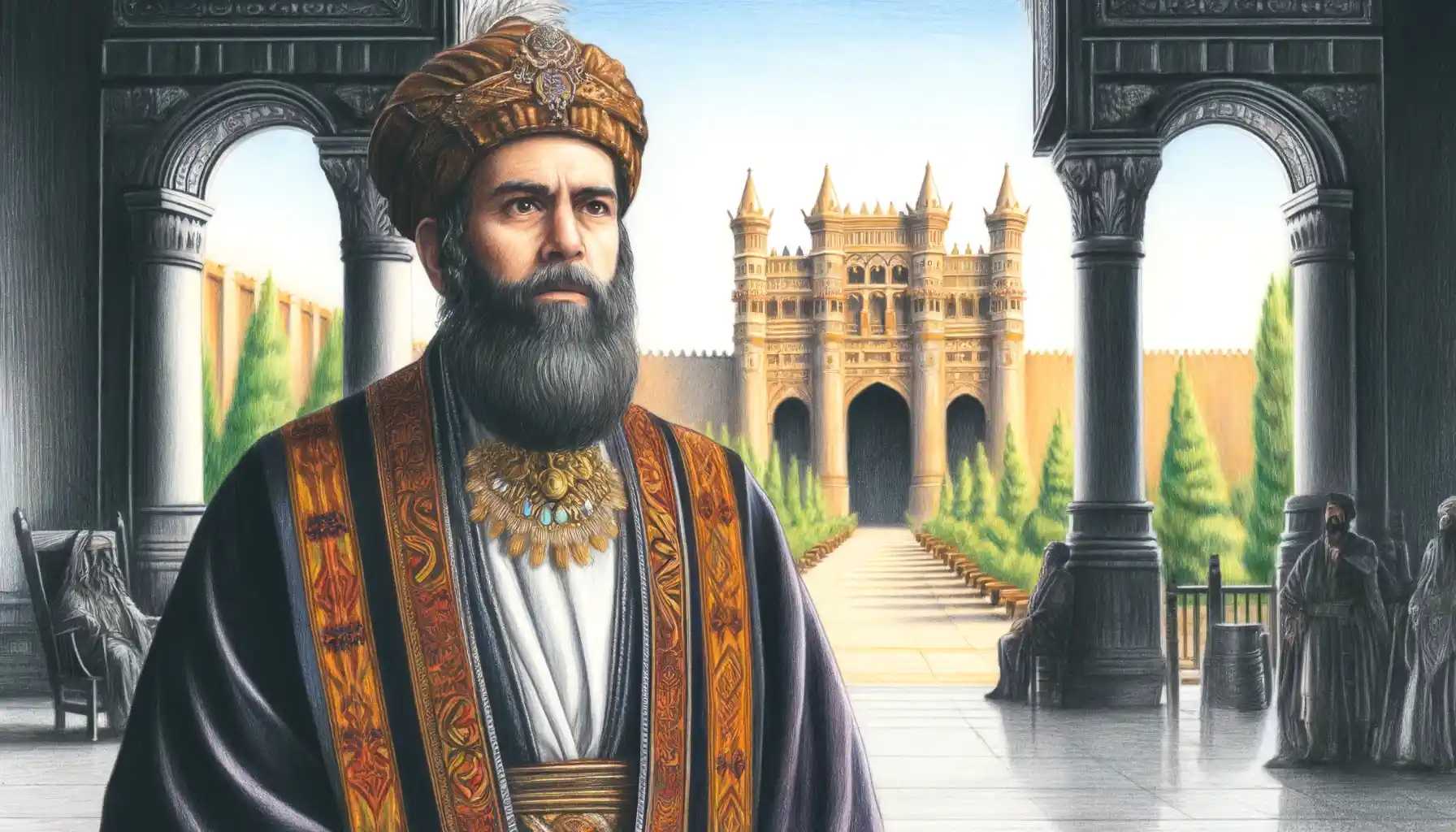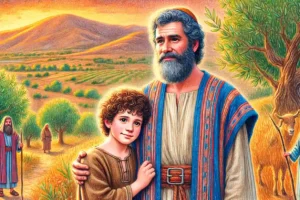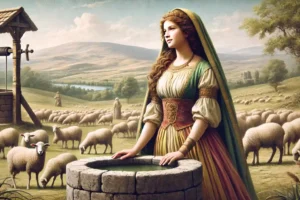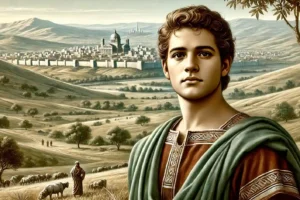
Mordecai: Guardian and Savior of the Jews
Mordecai is a significant character in the Old Testament, primarily featured in the Book of Esther. He is best known for his role in saving the Jewish people from a planned genocide during the reign of King Xerxes (Ahasuerus) of Persia.
Short Quick Facts:
- Name Meaning: Mordecai’s name is believed to be derived from the Babylonian god Marduk.
- Biblical Role: Mordecai is a prominent figure in the Book of Esther in the Old Testament.
- Relationship: He was the cousin and guardian of Esther, who became the queen of Persia.
- Position: Mordecai worked at the king’s gate, which was a position of some influence.
- Act of Bravery: He uncovered a plot to assassinate King Xerxes, which was recorded in the king’s chronicles.
- Conflict with Haman: Mordecai refused to bow to Haman, the king’s advisor, which led to Haman’s plot to annihilate the Jews.
- Esther’s Intervention: At Mordecai’s urging, Esther risked her life to reveal Haman’s plot to the king.
- Outcome: Haman was executed, and Mordecai was promoted to a high-ranking position in the Persian Empire.
- Jewish Festival: The events involving Mordecai and Esther are commemorated in the Jewish festival of Purim.
Mordecai’s story, as depicted in the Book of Esther, is a powerful narrative of faith, loyalty, and divine providence. It offers a deep exploration of his character, his actions, and the historical and theological significance of his role in Jewish history.
Historical Context
Mordecai lived during the time of the Persian Empire, under the reign of King Xerxes (Ahasuerus). The Jews, including Mordecai, were in exile in Persia, a period marked by both integration and tension with the surrounding culture. Mordecai’s presence at the king’s gate indicates his integration into the administrative framework of the empire while maintaining his distinct Jewish identity.
Character and Faith
Mordecai’s character is rooted in his unwavering faith and loyalty. His refusal to bow to Haman, the king’s advisor, stems from his adherence to Jewish religious principles that forbid such acts of reverence to anyone but God. This act of defiance is not just personal but represents a broader assertion of Jewish identity and faith in a foreign land.
Key Events and Actions
- Guardian of Esther: Mordecai’s role as the guardian of Esther is pivotal. He not only raises her but also positions her to become queen, thereby setting the stage for the deliverance of the Jewish people. His guidance and instructions to Esther throughout the narrative reflect his wisdom and strategic thinking.
- Uncovering the Assassination Plot: Mordecai’s discovery of the plot to assassinate King Xerxes highlights his vigilance and loyalty. Reporting this plot to Esther, who informs the king, leads to the foiling of the assassination attempt. This act of loyalty is recorded in the royal chronicles, which later plays a crucial role in Mordecai’s rise to power.
- Confrontation with Haman: Mordecai’s refusal to bow to Haman results in Haman’s wrath and his subsequent plot to exterminate the Jews. This conflict underscores the tension between the Jewish community and the Persian authorities. Mordecai’s steadfastness in the face of Haman’s wrath exemplifies his courage and faith.
- Appeal to Esther: Mordecai’s plea to Esther to intercede with the king is a defining moment in the narrative. He challenges her to use her position as queen to save their people, famously declaring that she might have been placed in her royal position “for such a time as this” (Esther 4:14). This appeal highlights Mordecai’s belief in divine providence and his strategic acumen.
- Victory and Promotion: After Haman’s plot is revealed and he is executed, Mordecai is promoted to a high-ranking position in the empire. This reversal of fortune is marked by the issuance of a decree that allows the Jews to defend themselves, leading to their survival and victory over their enemies. Mordecai’s rise to power ensures the safety and prosperity of the Jewish community in Persia.
Theological Significance
Mordecai’s story is rich with theological themes. His faith in God’s providence and his role in the deliverance of the Jewish people underscore the biblical theme of God’s faithfulness to His covenant people. Mordecai’s actions reflect the belief that God can work through individuals and events to bring about His purposes.
Legacy
The events involving Mordecai and Esther are commemorated in the Jewish festival of Purim. This celebration includes reading the Book of Esther, giving gifts, and feasting, serving as a reminder of God’s deliverance and the bravery of Mordecai and Esther. The festival reinforces the themes of survival, faith, and divine intervention that are central to the narrative.
In conclusion, Mordecai’s story is a testament to faith, courage, and divine providence. His actions not only saved his people but also left a lasting legacy that is celebrated in Jewish tradition to this day. Through his example, believers are reminded of the importance of faithfulness, the power of strategic action, and the assurance of God’s presence in times of crisis.



